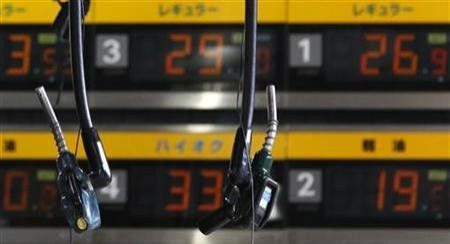Brent Crude Drops by $2 on Libya Hopes

Brent crude dropped by more than $2 on Monday to around $106 a barrel on the potential for a resumption of exports from OPEC member Libya as a six-month civil war there appeared close to an end.
Libya pumped around 1.6 million barrels per day, nearly 2 percent of global supply, before the war cut output. Most of Libya's high-quality crude flowed to European refiners, and tightening supply after Libyan exports stopped drove Brent toward a two-year high of $127.02 in April.
Brent crude traded down $2.36 a barrel at $106.26 at 0400 GMT, just above an intraday low of $106.15. U.S. crude rose 2 cents to $82.28 a barrel. The front-month September U.S. crude contract expires Monday.
It may take years for output from the world's 17th-largest oil producer to fully recover, but rebels hope to resume oil output -- Libya's main revenue earner. Analysts say output of as much as a million bpd could be feasible within months.
You will see a relaxation in the supply of crude to the region as a result of what is happening in Libya, said Jonathan Barratt, managing director at Commodity Broking Services in Sydney on how supplies coming back are hitting prices.
Tight supplies of Libya's light sweet crude in Europe helped fuel a widening of the spread between Brent and U.S. WTI crude. The spread is already narrowing and could contract further with the prospect of a resumption in Libyan supplies, Barratt said.
The important thing to note is that Brent and WTI (spreads) should be trading at $1-$2. It should never be $25, but this has been a result of Libya having lost so much supply of the light sweet crude which people rely on. The spreads between WTI and Brent should continue to unwind as Libya's light sweet crude is added back to the market. That would alleviate a lot of supply concerns on that spread.
Concern about the health of global markets kept investors skittish on Monday.
Market players are awaiting a speech from the U.S. Federal Reserve Chairman Ben Bernanke on Friday at a lodge in Wyoming's Jackson Hole, where policymakers and academics meet once a year to talk shop.
Last year, Bernanke used the podium to suggest the Fed could help growth by buying long-term bonds, a prelude to a program enacted soon afterward that did just that.
No grand new plan is expected to be hatched at this year's meeting, but investors are concerned the U.S. may again fall into recession and will be watching closely for any sign of a downgrade in Bernanke's economic outlook.
(Reporting by By Randy Fabi and Seng Li Peng in Singapore and Cho Mee-Young in Seoul; Editing by Simon Webb)





















